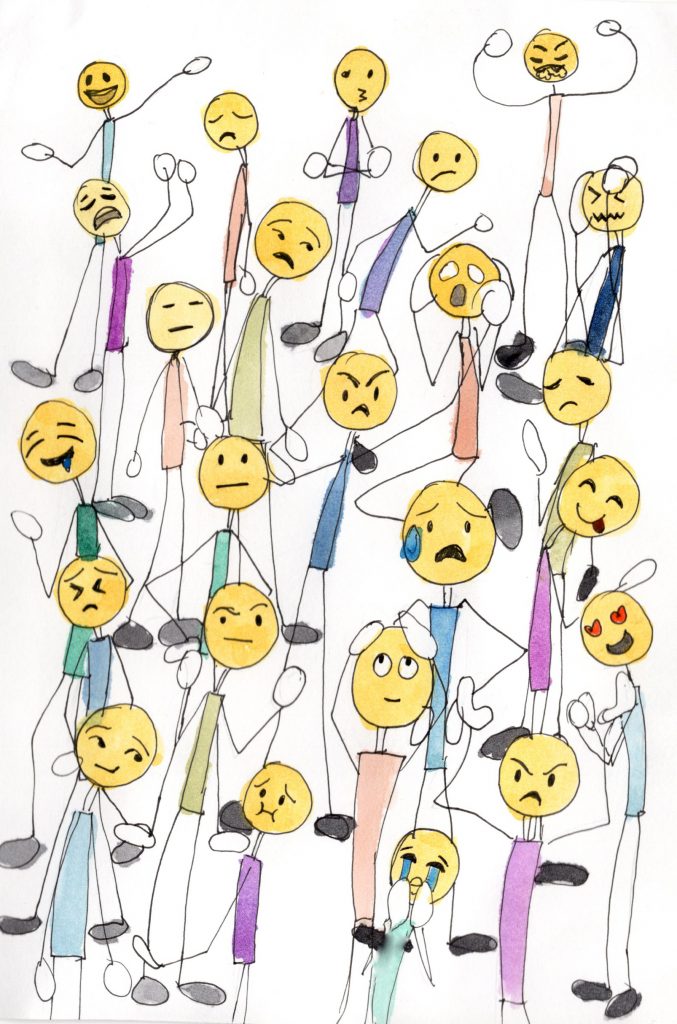The on-the-go availability of cell phones and social media attracts students of all ages. According to The Child Mind Institute, 42 percent of kids have a smartphone by age ten. By the time they are 14, that percentage shoots up to 91.[1]. Many of these children and teens have unrestricted access to social media, texting, and the Internet. How can parents and teachers help kids learn how to properly handle their smartphones and all of the social media outlets that may be negatively affecting them?
The Negative Aspects of Smartphones and Social Media
Technology can be a necessary tool, but it also creates big challenges. Many of the aspects of social media are negatively shaping how kids think, how quickly they mature, and how they treat others. Cyberbullying is running rampant: teasing, harassing, and “catfishing” (impersonating someone online) are real-life evils that children and teens continuously face, especially with unrestricted access to their cell phones. There are too many stories of students’ failing grades, anxiety, depression, self-harming, and even more horrific and tragic suicide as a result of heavy smartphone use. [2] Students could also be subject to mental distress on account of how attractive their social media site is to others, losing their sense of identity as they become normalized to what others see as “popular.”Many times, kids will measure their self-worth by what they see on social media: comparing how many Facebook friends they have to how many their peers have, wishing they had more “likes” on an Instagram photo they posted, and judging their lives by what they see others posting online.
How Parents and Teachers Can Help
The first and best line of defense lies exactly where children and teenagers spend their time: at home and in the classroom. There are many actions parents and teachers can take to prevent cyberbullying, academic suffering, and improper Internet usage.
If You Are a Parent:
- Don’t allow unrestricted Internet or cell phone access until the child is old enough to know how to utilize these resources properly.
- Obtain access to cellphones, iPads, and computers during homework and study time.
- Utilize parental apps and restrictions to limit what the child can download and access on the Internet.
- Require the user ID and password for daily monitoring if access to a social media profile is granted.
- Monitor access daily, including to what they’ve posted, “liked,” and sent to others.
If You Are a Teacher:
- Don’t allow cell phones in the classroom: this time is for learning, and what happens in the classroom has a direct effect on a student’s life.
- Observe behavior between students and monitor for bullying. Be aware that teasing, ridiculing, and harassment may also be happening online.
- Communicate any observed red flags with parents and administration.

Social media is not a negative mechanism; the danger lies in what we do with it. Children and teens need to be taught the proper way to utilize social media and to realize that their self-worth is not gauged by how others see them online. For example, Facebook is an awesome way to keep up with family and friends, not for creating fake profiles to bully others. X, formerly known as Twitter, can be used to express opinions while simultaneously respecting the opinions of others. If parents and teachers together enforce strict regulations, they could help to limit the downsides associated with social media, and successively increase our children’s positive learning and growth through media outlets.
This article was originally written and published in 2019 for Zealousness issue #13. Our team performed a new revision in preparation for the blog publication 2023.
Read other parenting-related blog posts on our Zealousness Parenting – iN Education Inc. (ineducationonline.org).
Citations:
[1] Miller, Caroline . 2016. “When Should You Get Your Kid a Phone?” Child Mind Institute. Child Mind Institute. February 25, 2016. https://childmind.org/article/when-should-you-get-your-kid-a-phone/.
[2] Abi-Jaoude, Elia, Karline Treurnicht Naylor, and Antonio Pignatiello. 2020. “Smartphones, Social Media Use and Youth Mental Health.” Canadian Medical Association Journal 192 (6): E136–41. https://doi.org/10.1503/cmaj.190434.






















